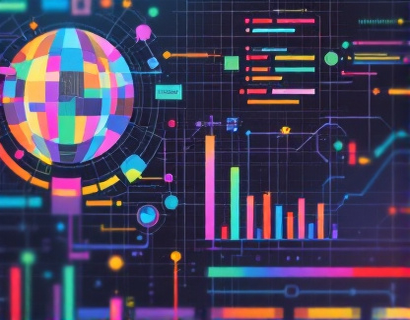Harnessing the Synergy of AI and Crypto: A New Era of Digital Productivity
The intersection of artificial intelligence and cryptocurrency is giving birth to a new paradigm in digital productivity. This fusion is not just a technological curiosity but a transformative force that is redefining how we work, interact, and manage our digital lives. For tech enthusiasts and early adopters, this convergence offers unprecedented opportunities to enhance efficiency, security, and innovation. This article delves into the ways AI and cryptocurrency are driving next-generation productivity, exploring the synergies that make this possible and the practical applications that are already making a difference.
Understanding the Basics: AI and Cryptocurrency
To fully appreciate the impact of AI and cryptocurrency on digital productivity, it's essential to understand the fundamental concepts of each technology. Artificial intelligence, broadly defined, encompasses systems that can perform tasks requiring human intelligence, such as learning, reasoning, and self-correction. Machine learning, a subset of AI, focuses on building systems that can learn from and make predictions based on data. On the other hand, cryptocurrency is a digital or virtual currency that uses cryptography for security and operates on a decentralized network, most notably blockchain technology.
Blockchain, the underlying technology of cryptocurrency, is a distributed ledger that records transactions across multiple computers in such a way that the registered transactions cannot be altered retroactively. This technology ensures transparency, security, and immutability, making it an ideal foundation for various applications beyond currency, including smart contracts, supply chain management, and identity verification.
AI in Cryptocurrency: Enhancing Security and Efficiency
One of the most significant impacts of AI on cryptocurrency is in the realm of security. Cryptocurrency exchanges and wallets are prime targets for cyberattacks due to the high value of digital assets. AI algorithms can analyze vast amounts of data to detect unusual patterns and potential threats in real-time, significantly reducing the risk of fraud and hacking. For instance, machine learning models can identify suspicious transactions and automatically alert users or block transactions, providing an additional layer of security.
Beyond security, AI is also improving the efficiency of cryptocurrency operations. Smart contracts, self-executing contracts with the terms directly written into code, can be enhanced with AI to automate complex decision-making processes. For example, AI can optimize the execution of smart contracts by analyzing market conditions, predicting price movements, and executing trades at the most favorable times. This not only reduces the need for intermediaries but also speeds up transaction processes, making cryptocurrency more accessible and user-friendly.
Cryptocurrency as a Fuel for AI Innovations
Conversely, cryptocurrency plays a crucial role in fueling AI innovations. The decentralized and transparent nature of blockchain provides a robust infrastructure for data sharing and verification, which is essential for training AI models. AI algorithms require massive amounts of data to learn and improve, and blockchain ensures that this data is secure, tamper-proof, and accessible to multiple parties without central control. This democratization of data can accelerate the development of more accurate and reliable AI systems.
Moreover, cryptocurrency facilitates micropayments, enabling a more granular and flexible monetization model for AI services. Traditional payment systems often involve high transaction fees and slow processing times, which can be a barrier for widespread AI adoption. Cryptocurrency, with its low transaction costs and near-instant settlement times, makes it ideal for compensating developers and users for AI-related services, fostering a more dynamic and inclusive ecosystem.
AI-Driven Cryptocurrency Market Analysis
The integration of AI and cryptocurrency extends to market analysis and trading. AI-powered trading platforms can process and analyze vast datasets, including historical price data, news articles, social media sentiment, and economic indicators, to make informed trading decisions. These platforms use natural language processing (NLP) to gauge market sentiment and predictive analytics to forecast price movements, giving traders a competitive edge.
Furthermore, AI can help in identifying arbitrage opportunities and managing risk. By continuously monitoring multiple exchanges and market conditions, AI algorithms can execute trades across different platforms to capitalize on price discrepancies. This not only maximizes returns but also reduces exposure to market volatility. For early adopters, these AI-driven tools can significantly enhance their trading strategies and improve overall portfolio management.
Decentralized Applications and AI: A New Frontier
The combination of AI and decentralized applications (dApps) is opening up new frontiers in digital productivity. dApps leverage blockchain technology to create applications that are transparent, secure, and resistant to censorship. When AI is integrated into dApps, the potential for innovation becomes even more profound. For example, AI-powered dApps can offer personalized recommendations, automated customer support, and intelligent data analysis, all within a decentralized framework.
One exciting application is in the field of decentralized finance (DeFi). AI-enhanced DeFi platforms can provide sophisticated financial services such as lending, borrowing, and trading, all while maintaining the benefits of decentralization. AI can optimize loan pricing, assess credit risk, and manage portfolios, making DeFi more accessible and efficient for a broader audience.
Enhancing User Experience with AI and Crypto
The user experience is a critical factor in the adoption of any technology, and the fusion of AI and cryptocurrency is no exception. AI-driven interfaces can adapt to user preferences and behaviors, providing a more intuitive and personalized experience. For instance, AI can analyze user interactions with a cryptocurrency wallet or a DeFi platform and suggest improvements or new features based on usage patterns.
Additionally, AI can enhance the accessibility of cryptocurrency and AI services. Voice-activated assistants and chatbots powered by AI can guide users through complex processes, answer questions, and provide real-time support. This not only improves user satisfaction but also lowers the barrier to entry for those new to these technologies.
Challenges and Considerations
While the potential of AI and cryptocurrency in driving digital productivity is immense, there are several challenges and considerations that must be addressed. Regulatory uncertainty remains a significant hurdle, as governments worldwide are still grappling with how to regulate these emerging technologies. Compliance with varying legal frameworks can be complex, and businesses must navigate these regulations carefully to avoid legal issues.
Another challenge is the technical complexity involved in integrating AI and cryptocurrency. Developers need a deep understanding of both technologies to create robust and secure systems. This requires a skilled workforce and significant investment in research and development. Moreover, the volatility of cryptocurrency markets can pose financial risks, and the environmental impact of blockchain mining is a growing concern that needs to be addressed.
Future Prospects: A Synergistic Future
Looking ahead, the synergy between AI and cryptocurrency is poised to drive even more innovative solutions and enhance digital productivity. As AI algorithms become more sophisticated and blockchain technology matures, we can expect to see more seamless integration and new applications across various industries. From smart cities to healthcare, the potential for AI and cryptocurrency to create more efficient, secure, and user-centric solutions is vast.
For tech enthusiasts and early adopters, staying informed and engaged with these developments is crucial. Participating in communities, attending conferences, and experimenting with pilot projects can provide valuable insights and opportunities to contribute to this exciting field. The future is bright for those who embrace the power of AI and cryptocurrency to transform the digital landscape.










































